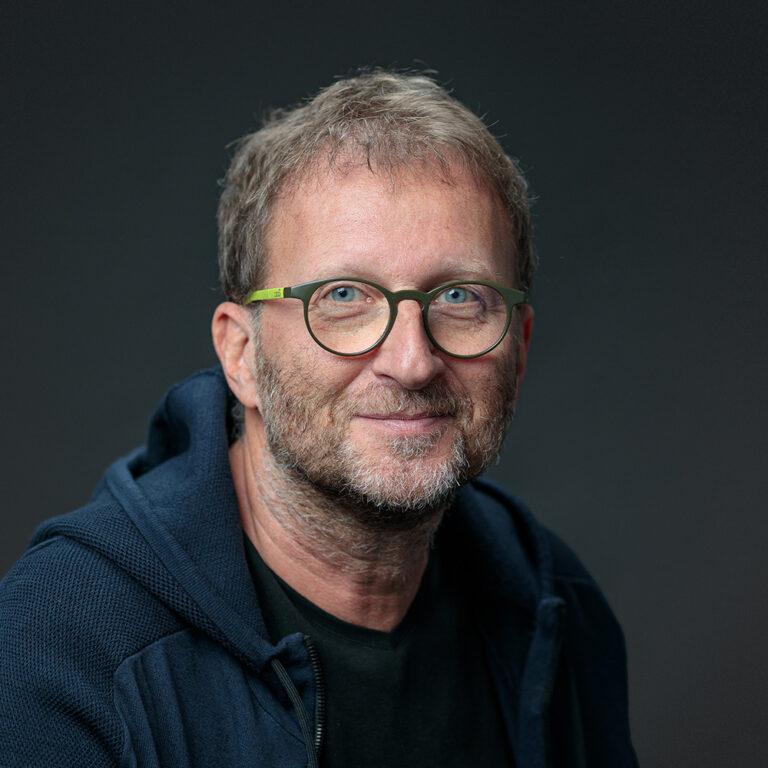The Changing Landscape of Commercial Film Production – Interview with Tamás Hutlassa: Part 2
Artificial intelligence is transforming the creative industry, and video production is no exception. AI-generated content is becoming more sophisticated, appearing in advertising, film, and even sound editing. But how far can it go? In this interview, Tamás Hutlassa, head of Café Communications' film division, shares his insights on the growing role of AI in video production. This is the second part of the interview, the first part focuses more on the changing landscape and client expectations in commercial film production.
we_can: AI-generated videos are becoming easier to create and increasing in quality; they are appearing more frequently. How common is their use now, or how soon do you think they could become a realistic part of video production?
(We have already examined how AI-generated images and text can be used in creative work. Some agencies are already using them for concept presentations, and there are even completed campaigns where AI-generated content was used.)
Tamás Hutlassa: There is an ongoing major debate in the film industry about the use of AI. One of the latest controversies was sparked by The Brutalist, where AI voice cloning was used. The characters played by Adrien Brody and Felicity Jones are of Hungarian descent and needed to speak Hungarian in the film. While the actors made an effort to learn the language, Hungarian is highly complex, with sounds they had never learned to pronounce correctly. AI was used to fix these small inaccuracies. They publicly stated that this method was applied because it was crucial for the narrative—after all, it would have been odd if a character who had just arrived from Hungary already spoke with an accent. This caused an uproar, with critics claiming that the film was not "real" because AI was used—even if only for voice editing. This shows that AI is still perceived in a strange and controversial way; the very idea of AI-generated content remains divisive.
Additionally, there is a significant legal issue: it is difficult to verify the origin of content used by AI. Right now, the biggest obstacle is precisely this legal question: who can ensure that the AI-generated content is truly copyright-free? Most likely, it cannot be because AI does not create something entirely new; it generates new material at an incredible speed based on existing ones.
That being said, nearly everything AI does now has been done before—just in a more complicated, time-consuming, and expensive way. AI simply accelerates these processes dramatically. Audio correction has been used for years—words and sounds have been replaced in recordings, and images have been digitally altered. AI now does all of this much faster and with far greater processing power. In Hungary, AI is already being used in sound studios and audio post-production. The software is accessible and already assisting in these areas.
 Tamás Hutlassa
Tamás Hutlassa
However, no one can predict the pace or scale of the breakthroughs ahead. We already see AI creating seemingly indistinguishable artificial content, but it is not yet at a level where it can fully replace entire professions. At certain points, AI can simplify and assist work, but it still cannot replace people. For AI to generate the exact output we desire, it requires input that only a strategist, creative director, or filmmaker can provide. Some roles will likely never disappear but will evolve to require new approaches and different communication methods.
One thing is certain: AI is here to stay, and it cannot be ignored, and no one wants to do so. However, expectations currently exceed what AI can realistically deliver.
Do you think that as AI-generated output improves, it could completely take over certain jobs? Will AI eventually “steal our jobs”?
AI may become more dominant in certain tasks than we currently imagine, but I don’t see that happening anytime soon, nor can I predict when. It will be present in many fields, many people will experiment with it, and there will be countless ways to integrate this technology. But this is not unique to the film industry—it applies to all areas of life. If we view it pessimistically, AI poses a threat. But if we take a more optimistic perspective, it presents countless opportunities.
One major concern right now is the creation of fake content using AI. Lately, we’ve seen this especially in politically charged videos, where a well-known figure appears to be saying something they never actually said—but the voice and mannerisms match perfectly. This shows how AI already enables large-scale misuse.
AI-generated content will only get better as the technology advances. If I watch a politician give a speech—but not live—can I ever be completely sure that they actually said those words and in that way? That it’s not a fake video?
From now on, you can never be sure. That’s why new safeguards are being developed: systems that can verify whether content is real or manipulated.
Regarding copyright issues: when it comes to AI-generated images, I understand that they can be licensed for use, and the type of license will depend on the app you are using and the license you have with them to produce commercial works, but they cannot be copyrighted. Even if AI is trained on copyrighted material, the final output is considered free to use. Is this the same for video and audio content?
It is—until someone steps forward and says, “Wait, that looks exactly like my work! How did AI get this?” Right now, there’s no clear way to check or enforce this.
As for AI taking jobs, many creatives we’ve spoken to share the view that AI presents opportunities. They focus on how to use these tools rather than worrying about losing their jobs.
I’m sure there’s an element of self-preservation in that mindset—perhaps a bit of forced optimism. People don’t want to believe that from today or tomorrow, their work may no longer be needed.
Published: March 12, 2025
.png)